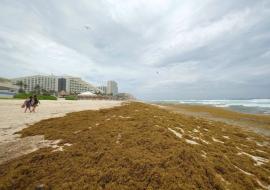Investigators Find Evidence Germanwings Pilot Hid Illness
German state prosecutors said they had found evidence that Andreas Lubitz, the Germanwings co-pilot who is suspected of deliberately crashing a passenger plane in the French Alps, had hidden an unspecified medical condition from his employers.
"Documents with medical contents were confiscated that point towards an existing illness and corresponding treatment by doctors," said the prosecutors' office in Düsseldorf, where the pilot lived and where the flight from Barcelona was heading.
"The fact there are sick notes saying he was unable to work, among other things, that were found torn up, which were recent and even from the day of the crime, support the assumption based on the preliminary examination that the deceased hid his illness from his employer and his professional colleagues," they said.
The prosecutors said in a statement that the documents were found in searches of Lubitz's homes in Düsseldorf and in the town of Montabaur in the state of Rhineland-Palatinate
Lufthansa chief executive Carsten Spohr acknowledged at a news conference on Thursday that Lubitz had broken off his training in 2009 but did not explain why. He said there was nothing in the pilot's background to suggest he was a risk.
"After he was cleared again, he resumed training. He passed all the subsequent tests and checks... his flying abilities were flawless," Spohr said.
French Prime Minister Manuel Valls on Friday urged patience but said the German airline had an obligation to share all information on Lubitz with investigators.
"We must wait for the end of the inquiry. I am careful when there is a judicial inquiry, but everything points to a criminal, mad, suicidal action that we cannot comprehend," Valls told iTELE.
"It is up to this company to provide a maximum of information so that we can understand why this pilot committed this dreadful act."
In Montabaur, a small town of 12,000 near the Rhine River, friends who knew Lubitz at the local flying club were stunned and saddened. Some pleaded with reporters who descended on the town not to rush to judge Lubitz until all the facts are known.
He was described as a friendly but quiet man who learnt to fly gliders before advancing to commercial aviation as a co-pilot at Germanwings in 2013.
"I got to know him, or I should say reacquainted with him, as a very nice, fun and polite young man," said Klaus Radke, the head of the flight club where Lubitz received his first flying license years ago.
"I'm just speechless. I don't have any explanation for this. Knowing Andreas, this is just inconceivable for me," Peter Ruecker, a long-time member of the flight club, told Reuters.
But a friend who met Lubitz six years ago and flew with him in gliding school, said he had become increasingly withdrawn over the past year.
Before Lubitz became a co-pilot in late 2013, the friend said the two had gone to movies and clubs together. But he noticed at two birthday parties they attended over the past year that he had retreated into a shell, speaking very little.
Randy Knipping, a Toronto-based specialist in aviation medicine, said it was extremely difficult to conduct screening for psychiatric problems among pilots, in part because they can put their careers in jeopardy by admitting to such problems.
"If somebody wants to withhold or conceal, there's no reasonable test," he said, adding that unless a family member comes forward to flag a mental problem, then problem cases can "slip through".
Germanwings has so far released few details of the co-pilot, who had only 630 hours of flying time to his name, unlike the captain who had flown for more than 6,000 hours and had worked for Lufthansa for 10 years.
Lubitz was trained at the Lufthansa pilot training academy in Bremen, which declined to talk about him, as well as in Arizona.
Source: Reuters














